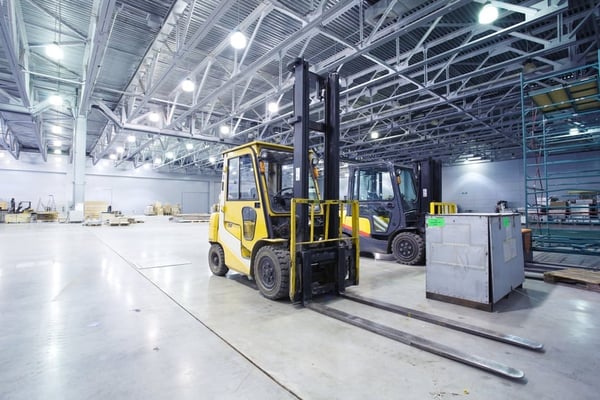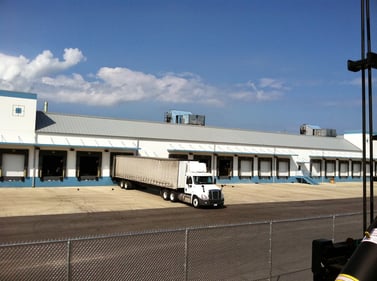
So you have an industrial packaging challenge that no one can solve, right? The item is too large. There are too many parts coming from hundreds, or even thousands, of different vendors. There are regulatory issues that make packaging and transport difficult. Or perhaps you simply can’t find an industrial packaging partner who can fully meet your needs.
Your job may be difficult, but it’s not impossible with the right partner. Here at Deufol, for example, we live by the motto “Tough Packs Solved.” It means we enthusiastically take on the toughest pack jobs and make it our mission to find the most efficient, effective, and innovative solutions.
Below are three of the toughest challenges we’ve faced and how we solved them.
1. Managing the Tool Supply
One of our clients is a global leader in the energy industry. They recently approached us with a unique challenge. They have repair technicians who travel around the country to perform service on generators and other pieces of large-scale energy equipment.
In most cases, the technicians don’t know exactly which tools they need until they get on site and inspect the equipment. As you might guess, the tools and parts are too large and cumbersome for a technician to cart around.
 The company had been employing a system in which a toolbox was shipped to each location whenever a technician would be onsite. The toolbox contained any part or tool that the technician may need. The technician would use those parts and then ship the box back to a central facility, where the inventory would be refilled and the box would wait until it was needed again.
The company had been employing a system in which a toolbox was shipped to each location whenever a technician would be onsite. The toolbox contained any part or tool that the technician may need. The technician would use those parts and then ship the box back to a central facility, where the inventory would be refilled and the box would wait until it was needed again.
There was a problem, though. The boxes were being refilled manually, and mistakes were being made. The person in charge of the refill wasn’t noticing that a particular part was missing and wasn’t refilling it. When the box was used the next time, it didn’t have all the needed tools and parts, causing costly delays.
Also, there were many toolboxes out in the field at one time. The company was manually tracking where the boxes were located and where they would go next. As demand for the parts grew, the process became unwieldy.
We offered a solution that solved both problems. First, we created a box that utilized GPS technology. That allowed the central hub to digitally track each box and coordinate its route and destination.
Second, we installed technology that would scan parts and tools as they were removed from the box. Those scans integrated with the company’s software and generated an automatic refill list. When the box returned, the team could simply check the list and refill the parts, without having to manually dig through the box to see what was missing.
Our solution reduced delays and administrative work and helped the team of technicians work more effectively.
2. Cool Designs for Cool Cars
We recently worked with an innovative new automotive company that is working to reshape the way cars and motorcycles are built. The company relies on a community of makers, designers, and engineers to product automotive products in micro-factories.
They tackle the job of production. What they needed was someone to handle packaging and transport. They had been considering a standard wooden crate solution, but that didn’t fully meet their needs.
Shipping cars is tricky business. Obviously, the quality of the car has to be maintained. The car can’t move around in the container. Also, the container needs to be resistant to extreme temperature changes. And, in this case, the container needed to be sized properly to fit on a plane.
This company had one other requirement. The package needed to have a “cool factor.” They make cool cars, and they do it in a way that is completely unique. They wanted a package that was consistent with their design and that set them apart. A wooden crate can accomplish many things, but it doesn’t usually have a cool quotient.
We sent our engineers to the drawing board to come up with a few designs. One was a stylish aluminum product. Another was a display container that actually showcased the car. Both designs also met the company’s functional requirements.
3. A Massive Package on a Tight Deadline
Another recent challenge involved packaging for a 350-ton steam generator. Our customer had assembled the generator in their facility and needed it packaged for shipment. The package had to be resistant to the elements for up to four years. It had to be packaged in their facility, and we would only have four days to get the job done.
Again, our team of engineers came together and developed a solution that met all the requirements. The real challenge was in implementing the design. We sent our team of specialists to the customer’s facility. Even though they hadn’t completed a job like this before, our team was able to get the job done in three days, one day ahead of the customer’s schedule.
The design was tested against hundreds of checkpoints, and our team had to complete dozens of tasks related to a tightly-developed process. The package passed every test with flying colors.
If you can’t find the perfect solution to your industrial packaging issue, don’t settle for a lesser option. Look for a partner that prides itself on solving tough challenges and is eager to discuss your needs and goals to develop an effective solution.





Let Us Know What You Thought about this Post.
Put your Comment Below.